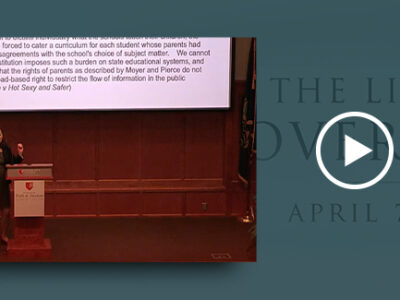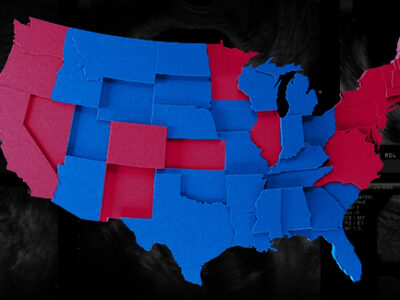In the past, I have written about poor governance at the city and national levels (“Detroit: A Glimpse into America’s Future?,” “We’re Broke,” “Into the Fiscal Abyss,” “The End Game,” et al.). But, of course, the “government disease” afflicts states also, as shown in a recent article in The Wall Street Journal, titled, “The Albany-Trenton-Sacramento Disease.”
The article focused on New York, New Jersey, and California, which are all cases of erstwhile prosperous states that have fallen on hard times. The common denominator has been liberal/“progressive” (i.e., big) government. All three employ heavy “soak-the-rich” state and local tax policies; and, yet, their government deficits are enormous. They rank near the top in per-capita state spending, but suffer from high unemployment and below-average job creation. They sought to be workers’ paradises with heavy unionization and a minimum wage above the national standard, yet lead the country in people moving out of state. What gives?
As Ronald Reagan would say, government is the problem, not the cure. During the Cold War, there were numerous studies showing an inverse correlation between size of government and economic growth: The larger a government’s share of a country’s GDP, the slower the growth of that GDP. In short, big government retards rather than promotes economic growth. Government spends only what it takes from the private sector. Thus, the private sector must generate enough wealth to sustain both itself and the governments it is forced to support. The larger government grows, the more severe its economic burden on the source of wealth-creation, i.e., the private sector.
The bloated governments of states like New York, New Jersey, and California are desperate for additional revenues. Where to go? They are looking at taxing individuals and businesses that have no physical presence in the taxing state.
The historical policy has always been that businesses that actually operate in a state—a factory, farm, retail outlets—are subject to taxation in that state. Thus, even though Wal-Mart is an Arkansas-based corporation, its individual stores, warehouses, distribution centers, trucking fleets, etc., are subject to taxation in whatever state it is located. This makes sense. A Wal-Mart store in Pennsylvania, for example, benefits from the roads, police and fire protection, and court systems of state and local governments there, so naturally it pays taxes to fund those services.
Picture a mom & pop business based in Pennsylvania, one with no office, no sales rep, no physical presence in New Jersey whatsoever; in other words, a business that receives none of the services provided by the state government. Why should that business pay New Jersey taxes?
Good question. And yet, New Jersey currently levies taxes on non-Jersey based businesses based on the portion of their revenues generated in the Garden State.
This tax amounts to a tariff on goods sent from one state to another. Such taxation is blatantly unconstitutional. The U.S. Constitution created the world’s first large free-trade zone: the United States of America. Article I, Section 9, Paragraph 5 states, “No Tax or Duty shall be laid on Articles Exported from any State.” Article I, Section 10, Paragraph 2 states, “No state shall, without the Consent of the Congress, lay any Imposts or Duties on Imports or Exports.”
State governments use a semantic trick to try to disguise their tariffs on imports from other states. They classify them as “income taxes.” This is an outrage, and un-American. It does violence to one of the fundamental principles for which our ancestors fought the war of independence from the British government—no taxation without representation. There is no justice in New Jersey taxing Pennsylvania businesspeople when the latter are not allowed to vote in New Jersey.
Sadly, the Supreme Court is doing nothing to stop this frontal assault on venerable constitutional principles. During its June session, the Court declined to review a Massachusetts judicial ruling that permits such taxation. The Supremes couldn’t be bothered even to hear the case, much less uphold the plain letter of the Constitution.
This gives the green light for other states to become more aggressive in venturing beyond their borders in their insatiable quest for revenues. Imagine the burden on small businesses if they eventually have to file and pay taxes to dozens of states. More importantly, imagine the impact on all of us.
Allowing predatory, deficit-ridden state governments to impose taxes on other states’ citizens—who never set foot in the taxing state, aren’t allowed to vote there, and receive no benefits from those states—invites dog-eat-dog economic battles that will turn American against American and ultimately bury the principle of federalism. The resulting divisive free-for-all would turn us into the Disunited States of America.
This is insanity. If the United States Supreme Court won’t halt the erosion of our constitutional principles, who or what will?




